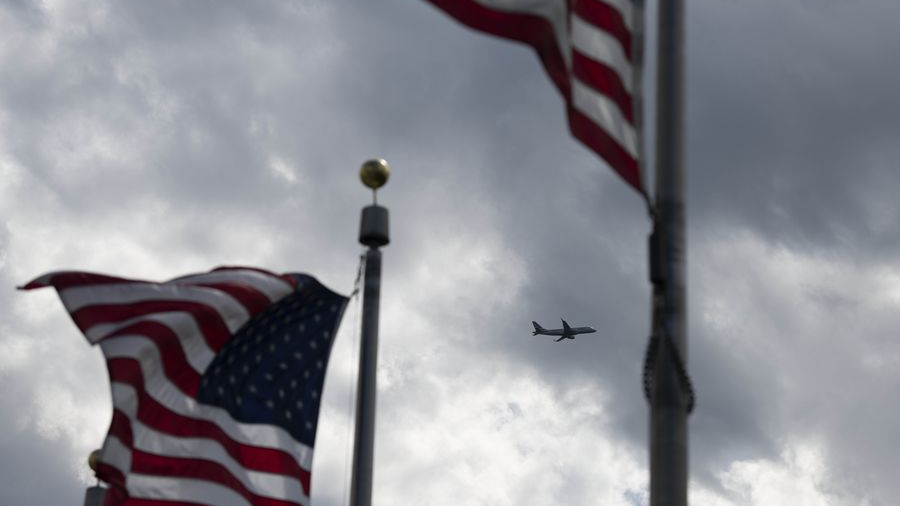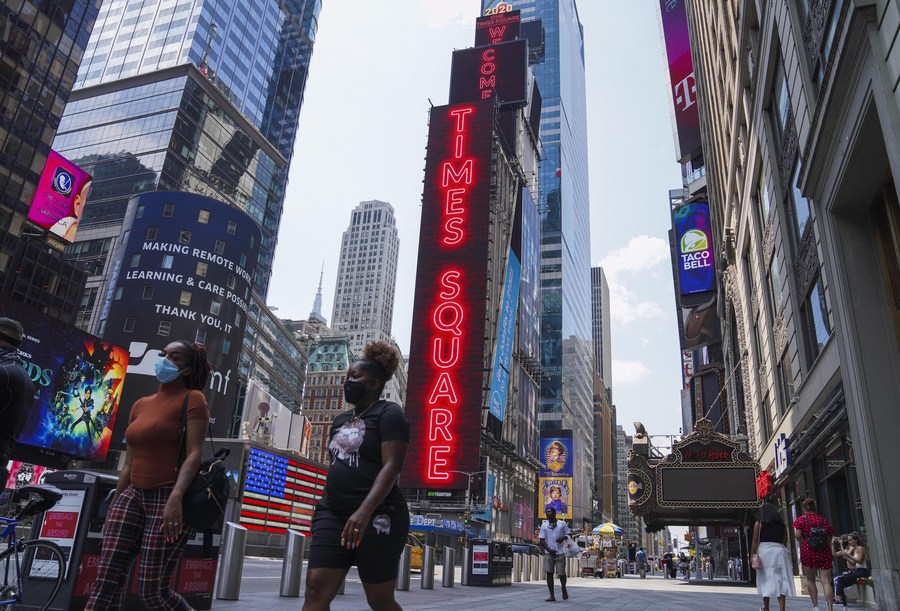
A plane flies in Washington D.C., U.S., April 21, 2020. /Xinhua
A plane flies in Washington D.C., U.S., April 21, 2020. /Xinhua
Editor's note: Alexander Norton is deputy features editor for the daily British newspaper the Morning Star. The article reflects the author's opinions, and not necessarily the views of CGTN.
New guidance from U.S. immigration services about the naturalization of communists has raised concerns that priority is being given to a new Cold War over a just migration policy.
On October 2, the U.S. Citizenship and Immigration Services (USCIS) issued policy guidance ruling that members of the communist party would be unable to become U.S. citizens under any circumstances.
The policy alert went on to clarify that any immigrant who is or has been a member of or affiliated with the communist party, domestic or foreign, is inadmissible.
It added: "This ground of inadmissibility only applies to aliens seeking immigrant status, such as aliens inside the United States applying to adjust status to that of a lawful permanent resident."
Policies were relaxed 30 years ago when the U.S. felt it had "won" the Cold War against the U.S.S.R., and in the accompanying policy manual, the USCIS claims there is little difference with the 1990 stance, saying the update is necessary as a slight wording change has expanded those affected from "immigrants" to "aliens" more generally.
"Aliens" here refers to foreign-born residents without citizenship who are recognized and recorded as living in the U.S. legally.
So what does this seemingly minor change mean?

People walk in Times Square in New York, U.S., August 9, 2020. /Xinhua
People walk in Times Square in New York, U.S., August 9, 2020. /Xinhua
Although the USCIS argues specific anti-communist legislation has always been in place since the 1950 Internal Security Act and its descendants, playing down any sense that this is a new direction, the fact that they have felt the need to tighten the wording of it now suggests they intend to use it.
Not every migrant to the U.S. arrives with a desire to meet Mickey Mouse in Disneyland or eat a Big Mac in Times Square. For most, the "American Dream" is forced upon them, by the concentration of wealth and stability within U.S. borders.
Workers migrate from Latin America precisely because U.S. foreign and economic policy prevents them from achieving a similar standard of life in their native countries. Many of them might be current or former communist party members, and many more could be seen as having "affiliation" via a trade union or electoral coalition.
And what of leading scientists, researchers and engineers, who may be one of the 91 million members of the Communist Party of China – that is without attempting to account potential affiliates?
The implication that they would rather go it alone than have the input of Chinese citizens that may choose to stay and live in the U.S. permanently after working there has potentially dire consequences, given the numerous emerging research gaps between the two superpowers. It's an expression of an unnecessary hostility at a time when the planet's future demands international cooperation.
That a policy targeting communist migrants stayed in place after 1990 might have been explained away as a relic of no longer informed decisions, but the fact that this guidance has now been expanded to include those who have been living legally in the country for decades proves the opposite.
Introducing new restrictions on migrants could prove self-defeating as the country simultaneously struggles to compete with China on technological innovation and tries to perpetuate its image as a bastion of liberty.
It remains to be seen if the world will accept the logic of a new Cold War this time around.
(If you want to contribute and have specific expertise, please contact us at opinions@cgtn.com.)